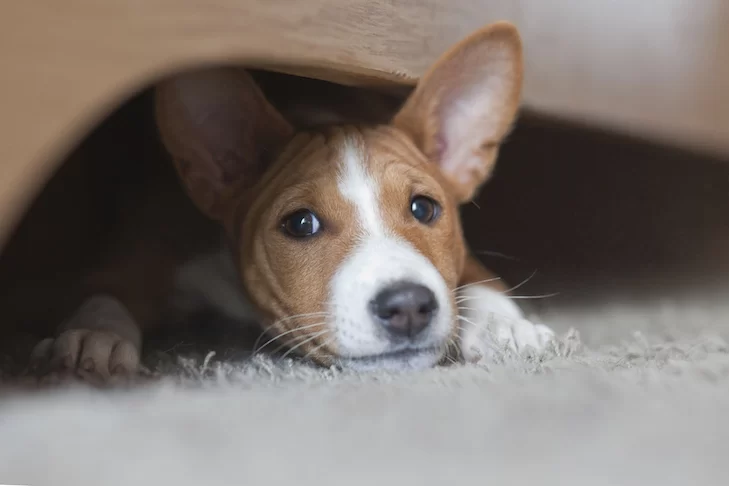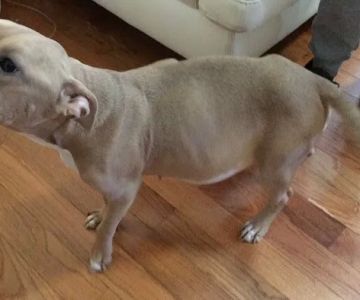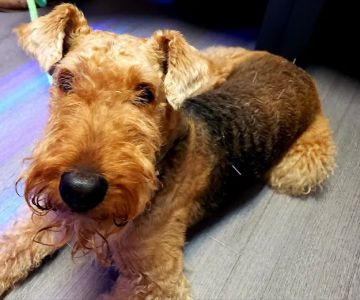Understanding Dog Anxiety and the Need for Holistic Remedies
As a pet owner, I know how distressing it can be to see your dog struggle with anxiety. Whether it’s caused by loud noises, separation, or unfamiliar situations, anxiety can significantly affect your dog’s behavior and overall well-being. Over the years, I’ve explored various ways to help calm my furry friend, and one approach that I’ve found incredibly effective is using holistic remedies. These natural solutions not only provide comfort but also promote long-term well-being for my dog. If your dog is struggling with anxiety, I’m here to share some holistic remedies that might just make a difference.
1. The Power of Essential Oils
One of the first holistic remedies I tried for my dog's anxiety was essential oils. At first, I was skeptical, but I quickly learned how effective certain oils can be in promoting calmness. Lavender, chamomile, and frankincense are well-known for their soothing properties. I remember the first time I used a few drops of lavender oil in a diffuser—my dog, Max, who usually paced around nervously during thunderstorms, was surprisingly calm. It was a breakthrough for us!
When using essential oils, it's important to remember that not all oils are safe for dogs, so always do your research or consult with a holistic veterinarian before introducing any oils into your pet’s environment. I recommend using a diffuser in a well-ventilated room and avoiding direct application of essential oils to your dog's skin unless under the guidance of a professional.
2. Calming Herbal Supplements
Another holistic remedy that worked wonders for my dog was calming herbal supplements. After consulting with my vet, I started giving Max an herbal blend of valerian root and passionflower. These herbs are known for their calming effects and are often used to treat anxiety in both humans and animals. To my surprise, Max’s anxiety reduced significantly after taking these supplements for just a few weeks. The benefits were noticeable during stressful situations like vet visits or car rides.
Herbal remedies are a great option for natural anxiety relief, but just like with any supplement, it’s important to ensure the dosage is correct for your dog’s size and condition. Always consult a holistic vet to ensure the supplements are safe and appropriate for your dog’s specific needs.
3. CBD Oil: A Game Changer for Anxiety
In my search for natural remedies, I also came across CBD oil for dogs. Initially, I was hesitant to try it, but after hearing from several pet owners and experts, I decided to give it a try for Max. CBD, derived from hemp, has been praised for its ability to help reduce anxiety and stress in both humans and pets. After a few days of incorporating CBD oil into Max’s routine, I noticed a huge difference in his demeanor—he seemed calmer, less restless, and much more at ease during stressful situations.
What I love about CBD oil is that it's non-psychoactive, meaning it won’t make your dog feel “high,” but it can help alleviate anxiety by interacting with the endocannabinoid system, which plays a key role in regulating mood and stress responses. I recommend choosing high-quality CBD oil that is specifically formulated for pets and starting with a low dose to observe your dog’s reaction.
4. Creating a Calm Environment with Music
Another strategy I’ve found effective for alleviating dog anxiety is using calming music. Dogs, like us, are sensitive to sound, and certain types of music can help to soothe their nerves. I discovered this when I played soft classical music for Max during thunderstorms. To my surprise, it had a noticeable calming effect on him. There are even playlists and albums specifically designed for dogs that include calming sounds, such as gentle piano music or nature sounds.
Research shows that dogs respond well to certain types of music, especially when it’s relaxing and not too loud. I started playing calming music during high-stress moments, and it really helped Max relax. I also found that incorporating soothing sounds into his daily routine made a significant difference in his overall anxiety levels.
5. Regular Exercise and Physical Activity
Physical activity is another key component in managing anxiety. I've seen firsthand how exercise can help reduce Max’s anxiety. Regular walks, playtime in the backyard, and even interactive games like fetch can help burn off excess energy, which in turn reduces anxiety. Dogs that have pent-up energy are more likely to become anxious, so keeping them physically active can work wonders.
For dogs with high anxiety, it's important to focus on exercises that are both mentally and physically stimulating. Puzzle toys, training sessions, and even agility exercises can help redirect your dog’s focus, providing both physical and mental stimulation. I found that after a good walk or a play session, Max was much calmer and more at ease in the house.
6. Acupressure and Massage Therapy
One of the more calming holistic remedies I’ve recently started incorporating into Max’s routine is acupressure and massage therapy. Dogs, just like humans, can benefit from a good massage, especially if they’re feeling tense or anxious. I learned that gentle pressure applied to certain points on a dog’s body can help release tension and promote relaxation. Max absolutely loves his massage sessions, and I’ve noticed he’s much more relaxed afterward.
Acupressure involves applying pressure to specific points along your dog’s body that are believed to promote healing and relaxation. While this therapy can be done at home, it’s important to consult a professional who can teach you the right techniques. A trained canine massage therapist can also work with you to address your dog’s unique anxiety issues and help you learn how to reduce stress through touch.
7. The Importance of Routine and Stability
Lastly, one of the most powerful holistic remedies for dog anxiety is creating a consistent routine. Dogs thrive on routine, and knowing what to expect each day can help reduce anxiety. I’ve seen how having set feeding times, regular walks, and predictable bedtimes can work wonders in reducing Max’s anxiety levels.
Inconsistent schedules or sudden changes in a dog’s environment can cause stress, so creating a stable, predictable environment is essential. Additionally, providing your dog with a designated safe space where they can retreat when feeling overwhelmed can help them manage stress more effectively.












